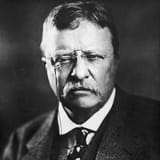>>213910761
To expand on this: it wasn’t the Vietnam War or even the Reagan Revolution that marked the decisive turn in American attitudes toward monopoly and corporate power. The real pivot happened earlier, during the chaotic wartime and immediate postwar years. After the failed “Business Plot” of the 1930s and the later Wallace coup at the Democratic convention, the elevation of Harry Truman to the vice presidency, and then suddenly the presidency with Roosevelt’s death, fundamentally reshaped the balance of power in American political economy.
Truman, unlike FDR, had no interest in continuing the New Deal’s confrontational stance toward concentrated corporate power. Instead, his overriding obsession became the Cold War. Doubling down on the Soviet threat, authorizing the use of the atomic bomb, and green-lighting the creation of the CIA all cemented a new alignment between the U.S. state and big business. National security provided the justification: monopolistic defense contractors, oil giants, and global financial institutions were no longer seen as dangerous concentrations of power to be broken up, but as indispensable arms of the struggle against communism.
That was the moment when the old trustbusting ethos quietly dissolved. Anticorporate sentiment had defined much of American political identity since the Progressive Era, but by the late 1940s the fusion of government, military, and megacorporations, the early military-industrial complex, began to be treated as sacred, even patriotic. From there, Americans were gradually taught to see monopolies not as enemies of democracy, but as guarantors of national security and prosperity.
 8/17/2025, 6:52:39 PM
No.213909577
>>213909655
>>213909734
>>213909779
>>213910082
>>213910486
>>213910541
>>213910796
>>213911580
8/17/2025, 6:52:39 PM
No.213909577
>>213909655
>>213909734
>>213909779
>>213910082
>>213910486
>>213910541
>>213910796
>>213911580


